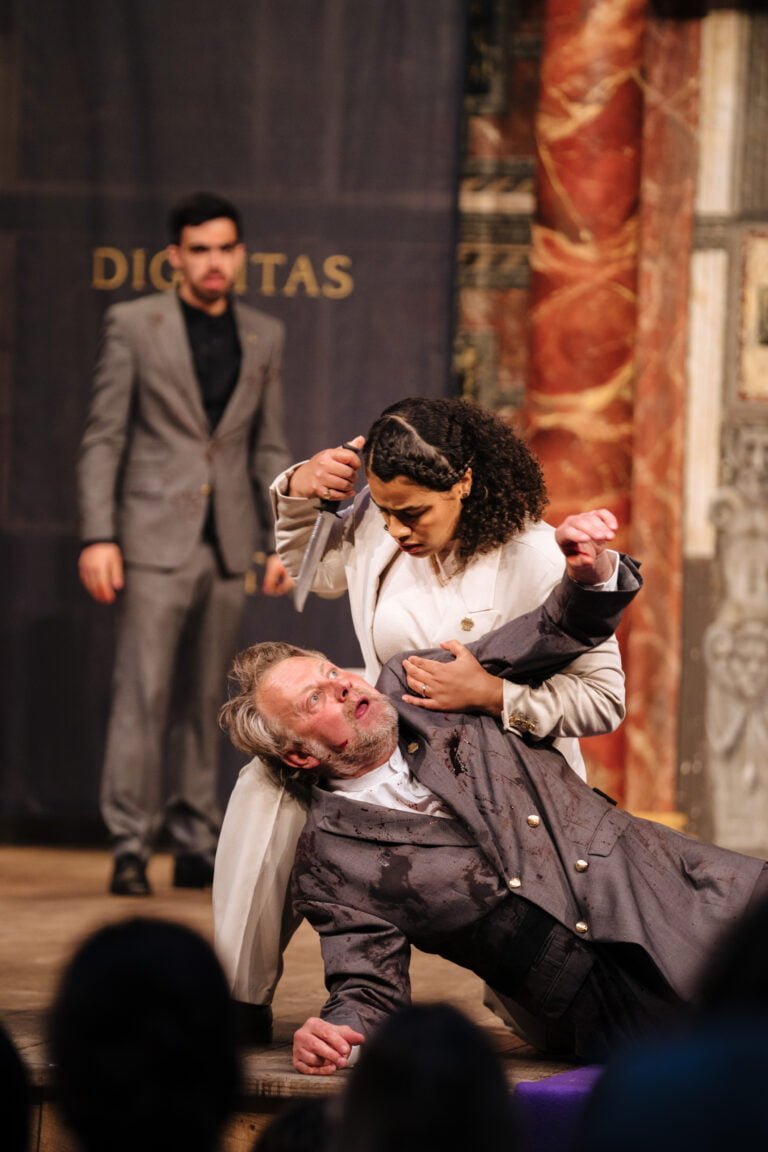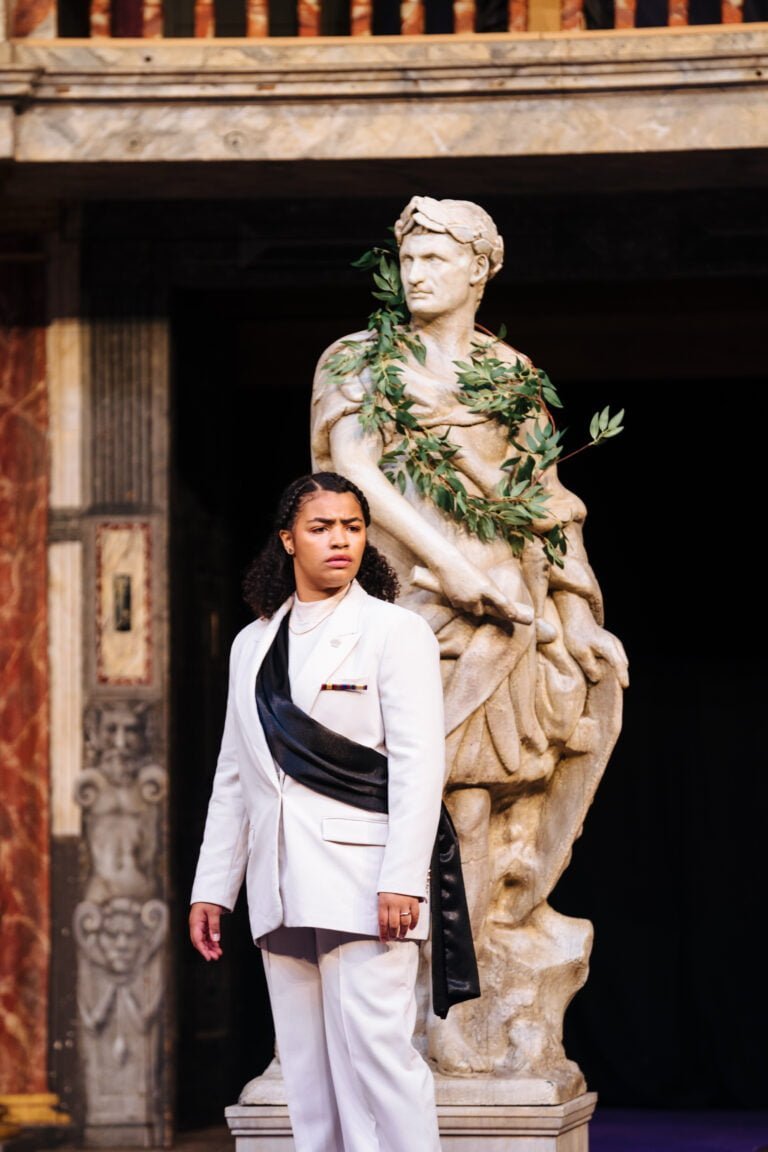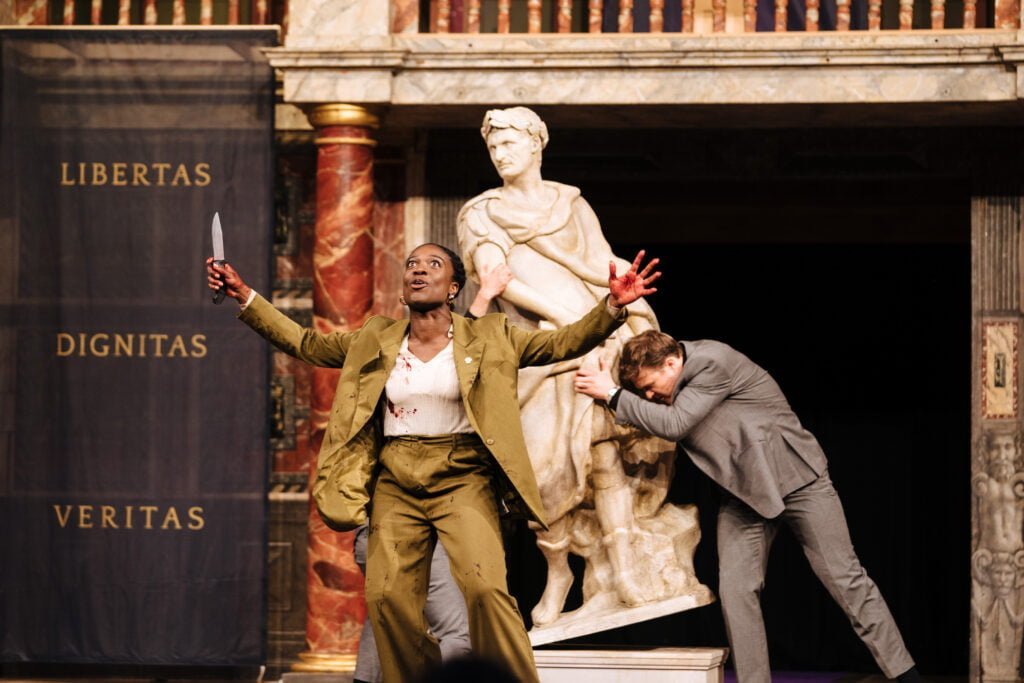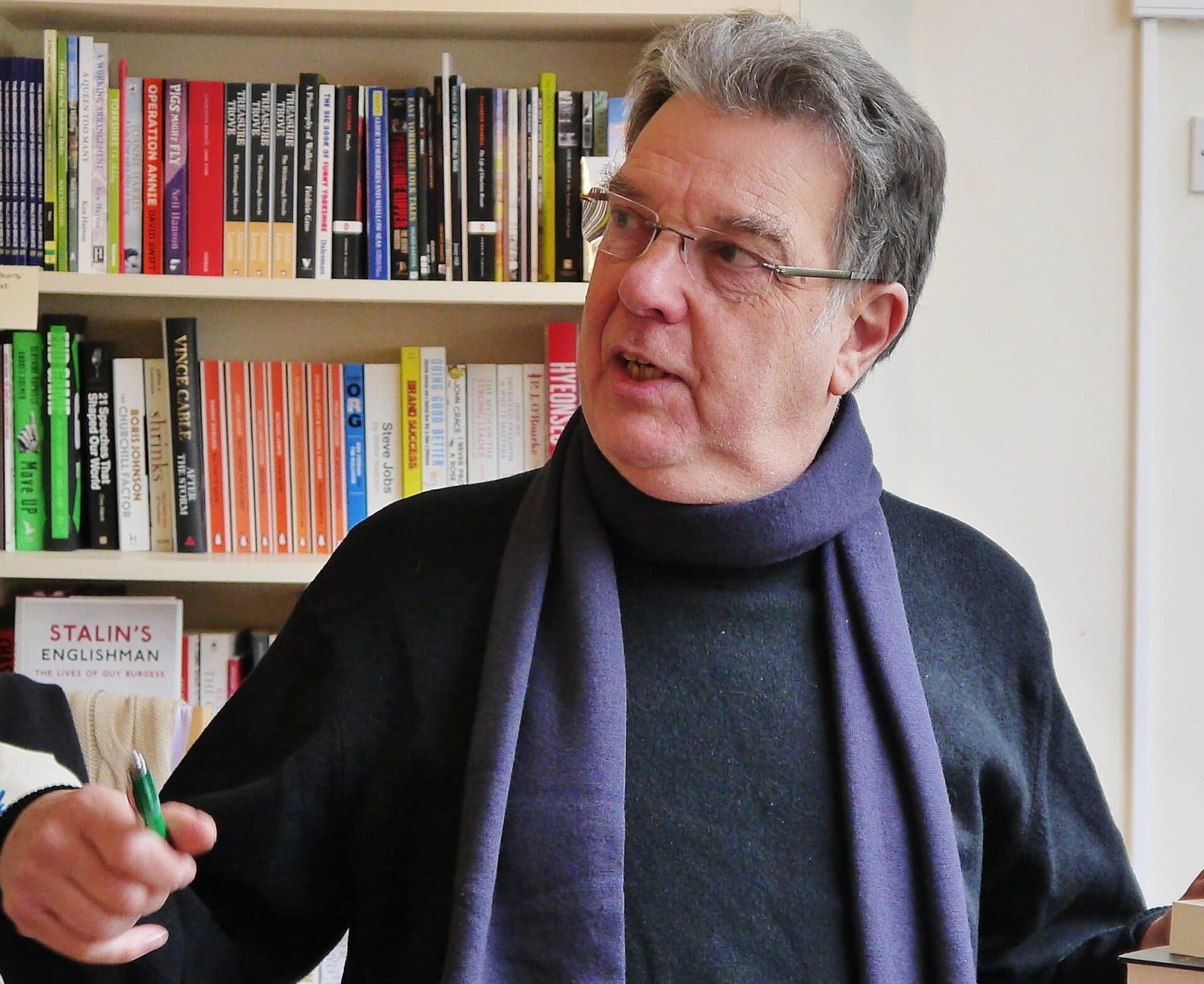The audience laughed as they killed Caesar
“Upon what meat does this our Caesar feed, that he is grown so great?”
Cassius

Shakespeare’s Julius Caesar is the best political play ever written – or if there is a better one, I don’t know it. It works for each new generation, because it’s about universal laws of politics, which apply whatever the issues of the day are, whatever political system you have. For Caesar and Anthony, read Stalin and Putin. For Brutus and Cassius read Blair and Brown.
So Julius Caesar should not be marooned in ancient Rome, as it was in the days when Shakespeare was treated reverentially. Joseph L. Mankiewicz’s 1953 film, despite Marlon Brando’s thrilling Anthony and John Gielgud’s serpentine Cassius, had its toga tightly wrapped round it like a shroud.
Diane Page’s decision to set it in the here and now is the right one, and I settled back as comfortably as you can in the Globe seats, hoping for a production to rival Nicholas Hytner’s magnificent 2018 production at the Bridge, in which the politics took you by the throat and never let you go, and Ben Whishaw and Michelle Fairley as Brutus and Cassius manoeuvred around each other as though they had been cabinet rivals for years.
Page’s production started well: she cleverly brought on the carpenter from the first scene to whip the audience into a frenzy of enthusiasm for Caesar, before handing the scriptwriting back to Shakespeare. This was funny, and it deserved the laughter it provoked.
The trouble was that, at any rate on the night I saw it, the laughter never stopped. The excited audience laughed a lot, often when something dreadful was happening. I have never before heard laughter in a theatre while Caesar was being killed.
So what was wrong? Was it that audience? Have we become inured to horrible things? Or was there something wrong with the production?

The answer, I think, is all three. The production had its heart in the right place, but it didn’t work.
Anna Crichlow’s Brutus was at least solid and thoughtful, though perhaps a bit wooden, but Charlotte Bate’s Cassius had all the character’s brittle intensity but none of Cassius’s political cunning. It did not help that they first appeared, puzzlingly, in white suits with a black sash. Dickon Tyrrell’s Caesar had all the dictator’s secret terror, but none of his strength and ruthlessness.
The only one of the major characters who seemed comfortable in his skin was Samuel Oatley as Mark Anthony. His performance was almost, but not quite, spoiled at the start by the director’s decision to have him appear with a shirt open to the waist and carrying a bottle of beer while escorting Caesar, but Oatley’s “Friends, Romans, countrymen” speech was a tour de force.
The minor characters fared no better. Cash Holland seemed to be under directorial instructions to play Brutus’s wife Portia for laughs. Omar Bynon put on a comical regional accent for Decius, presumably so we did not confuse him with the Omar Bynon who played the soothsayer, and he did not convince me that he had the skill to deceive Caesar.
The company of eight wasn’t big enough to fill the vast Globe stage in the action scenes. Most theatre productions do not try to present the battle on stage. But here we were right in the heart of the action, with five or six actors practicing judo on each other – an odd thing to do when you are a soldier with a gun in your hand.
Yet this production had good things going for it. It played to the gallery, just as it should, and the gallery – or in this case the groundlings – rewarded it with plenty of audience participation. Diane Page’s cuts to the script were bold and judicious – Mark Anthony’s last speech was always a lazy way of ending the play, bland and out of character, and we were better off without it.
But big climactic moments were thrown away. Actors wandered around the stage because it was there, rather than using it. The big speeches – Cassius’s “The fault, dear Brutus, is not in our stars”, Caesar’s “I am constant as the northern star” – lost their impact. Page had the right idea, but the implementation wasn’t good enough.


Francis Beckett is an author, journalist, playwright and contemporary historian. He was the 2009 winner of the Ted Wragg Award for lifetime achievement in education journalism.
His latest two plays are A Modest Little Man (about Clement Attlee) and Vodka with Stalin.
Production Notes
Julius Caesar
Written by William Shakespeare
Directed by Diane Page
Cast
Starring:
Anna Crichlow
Cash Holland
Charlotte Bate
Dickon Tyrrell
Samuel Oatley
Amie Francis
Omar Bynon
Jack Myers
Creatives
Director: Diane Page
Designer: Khadija Raza
Composer: Simon Slater
Choreographer: Asha Jennings-Grant
Dramaturg: Jesse Haughton-Shaw
Information
Running Time: Two hours 40 minutes with an interval
Booking to 10th September 2022
Theatre:
Shakespeare’s Globe
New Globe Walk
Bankside
London SE1 9DT
Phone: 020 7401 9919
Website: Shakespeare’s Globe
Rail/Tube: London Bridge
Reviewed by Francis Beckett
at the GLOBE
on 14th May 2022
